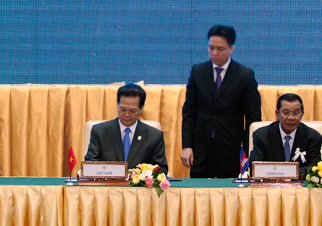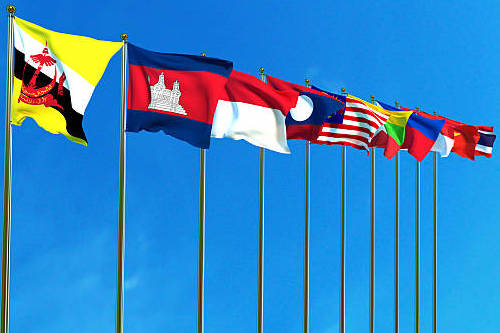 The ICJ condemns the adoption by the ASEAN of a fatally flawed Human Rights Declaration, and calls on the people in the region and the international community to immediately repudiate the text.
The ICJ condemns the adoption by the ASEAN of a fatally flawed Human Rights Declaration, and calls on the people in the region and the international community to immediately repudiate the text.
“It is unfortunate that ASEAN Member States do not realize that they have just adopted a text that is a radical departure from international human rights law,” said Wilder Tayler, Secretary General of the ICJ.
The ICJ concurs with the position of the independent experts of the Human Rights Council Special Procedures who expressed their concern over certain provisions included in the Declaration’s General Principles.
The adopted text includes in its General Principles provisions that subject the enjoyment of fundamental rights to a “balancing” with government-imposed duties on individuals.
The Declaration also challenges the principle of universality of human rights by making them subject to regional and national contexts.
In addition, it allows for broad and all-encompassing limitations on rights, including those that may never be restricted under international law.
In an effort to salvage the Declaration, the Philippine government suggested an addition to the statement upon adoption, which says: “Reiterating ASEAN’s and its Member States’ commitment to ensure that the implementation of the [Declaration] be in accordance with our commitment to the Charter of the United Nations, the Vienna Declaration and Programme of Action (VDPA), and other international human rights instruments to which ASEAN Member States are parties, as well as to relevant ASEAN declarations and instruments pertaining to human rights.”
The ICJ, however, believes that the hasty addition does not address the most noxious parts of the Declaration.
“The idea of balancing the enjoyment of rights vis-à-vis duties and responsibilities of an individual turns on its head the entire raison d’être of human rights,” Tayler added. “Human rights impose a limitation on the duties that states may impose on an individual and not the other way around.”
From the very beginning of the drafting process of the ASEAN Human Rights Declaration, the ICJ has been vigorously reminding ASEAN Member States to ensure that the adopted text must accord with international human rights law and standards.
The ICJ has also expressed disappointment that the ASEAN Intergovernmental Commission on Human Rights (AICHR), the body tasked to undertake the elaboration of the Declaration, went about their drafting with almost no consultations with civil society groups.
Only a few of the AICHR members conducted consultations in their own countries, and most of these consultations were ineffective, with drafts of the declaration never publicized. The AICHR met civil society groups regionally only twice and only towards the end of the drafting process.
The ICJ says that input provided by civil society groups during these consultations were hardly reflected in the text of the Declaration.
The ICJ calls on the people in the ASEAN region and the international community to immediately and publicly repudiate the Declaration.
“We cannot and will not use the Declaration, as it is inconsistent with human rights obligations already incumbent up ASEAN States. Its adoption only hampers any regional efforts to improve the human rights situation in the ASEAN,” Tayler said. “It bolsters the position of those who think that the half a billion people in the ASEAN region do not deserve the same human rights protections as the rest of the world.”
The Geneva-based organization will continue to use international human rights law and standards in its work in promoting and protecting the rights of the people in the region.
Contact:
Emerlynne Gil, International Legal Adviser, ICJ Bangkok Office, t +66 840923575, email: emerlynne.gil(at)icj.org
Ian Seiderman, ICJ Legal and Policy Director, Geneva Office, t + 41 22 979 3837, e-mail: ian.seiderman(at)icj.org
Photo by vgp, bac nhat





